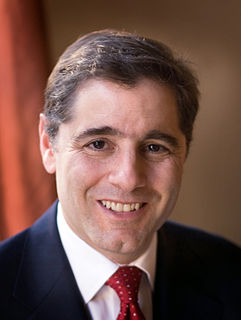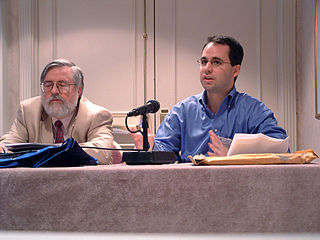A Quote by Vint Cerf
There's nothing special about wireless networks except that wireless capacity is sometimes less than what you can get, for example, from optical fiber.
Related Quotes
For 'Thunderstruck', I discarded about a dozen ideas. And then one afternoon, I was thinking about wireless. I don't know why. I guess because it's become so ubiquitous. I was thinking that maybe there's something I could do about the origin of wireless, so I did what any self-respecting person does these days: I Googled 'wireless.'
Every notable advance in technique or organization has to be paid for, and in most cases the debit is more or less equivalent to the credit. Except of course when it's more than equivalent, as it has been with universal education, for example, or wireless, or these damned aeroplanes. In which case, of course, your progress is a step backwards and downwards.
This years keynote session is a clear reminder that wireless data technology is expanding its reach beyond that of an alternative to wireline telephony. We have gathered an exclusive group of business leaders to share how wireless is being integrated into their companys business strategies and what it means for their bottom lines. The presence of these telecom, media and entertainment giants on our center stage is a great indicator of the impact wireless data has made on countless industries.
Next-generation networks are hard to build. It takes a lot of money and effort to lay fiber, install wireless infrastructure, build satellite earth stations, and more. It also requires a reasonably certain business case for deployment, which is all too often hard to prove in parts of the country with sparse population and/or lower incomes.
WhatsApp is both disrupting and demonetizing the entire wireless industry, and now the Facebook acquisition provides the infrastructure needed for WhatsApp to begin offering voice calls. So instead of people paying on average $80 per month, users only have to pay $0.99 per year for the same services. Wireless carriers, beware.
We need a wireless mobile device ecosystem that mirrors the PC/Internet ecosystem, one where the consumers' purchase of network capacity is separate from their purchase of the hardware and software they use on that network. It will take government action, or some disruptive technology or business innovation, to get us there.




































